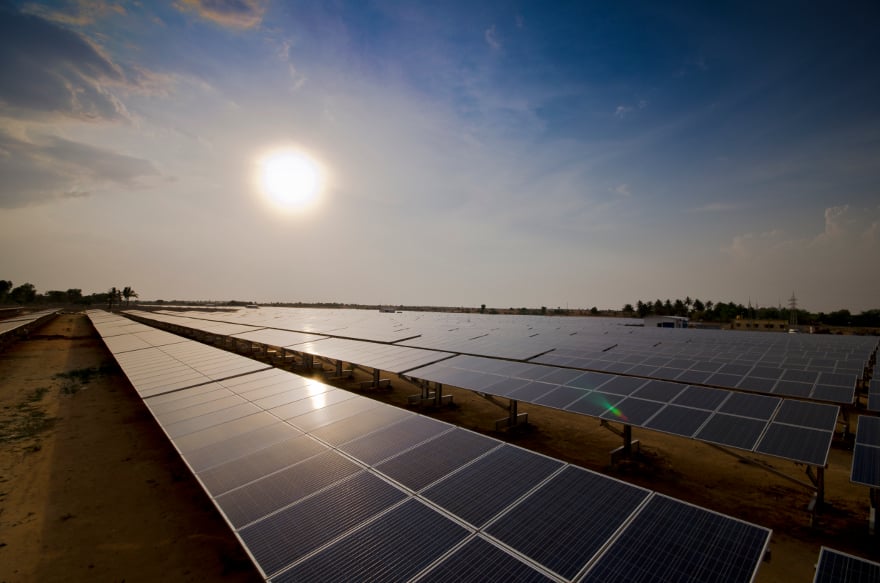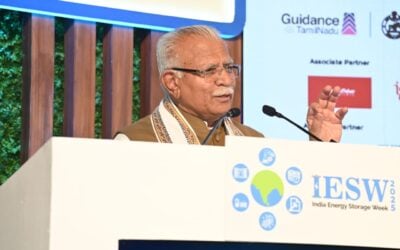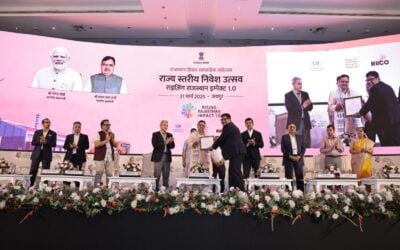
JSW Renew Energy Five has been given the official notice to go ahead with two large-scale battery storage projects it was awarded in a tender by the Solar Energy Corporation of India (SECI).
Government-owned SECI launched the pilot tender last April, seeking bidders for the delivery of two equally sized 250MW/500MWh battery energy storage systems (BESS). These will be installed at adjacent sites to connect to India’s Inter-State Transmission System from a substation in Fatehgarh in the state of Uttar Pradesh.
Enjoy 12 months of exclusive analysis
- Regular insight and analysis of the industry’s biggest developments
- In-depth interviews with the industry’s leading figures
- Annual digital subscription to the PV Tech Power journal
- Discounts on Solar Media’s portfolio of events, in-person and virtual
One of the bigger stories in what was a busy year for the Indian clean energy sector, SECI designed the tender to be widely replicable so it can be used to inform how other tenders will be conducted.
At a webinar hosted by Energy-Storage.news with consultancy Clean Horizon, SECI general manager Dr Bharath Reddy explained the structuring of the tender and discussed the corporation’s other activities to support energy storage for integration of renewable energy.
The winning company is part of Indian conglomerate JSW Group’s JSW Energy subsidiary, and was announced as the winner in August. The tender proved popular, with a reported 10 hours of bidding taking place before JSW Renew Energy Five won with a reverse auction bid of INR1,083,500 (US$13,590 at the time) per megawatt.
Indian news outlets including The Economic Times reported this morning that JSW Renew Energy Five has received its Letter of Award (LoA) from SECI, meaning the project can now proceed. The Economic Times noted that the developer will receive a fixed capacity payment over a 12-year term of IR1,080,000 (US$13,273) per megawatt.
As mentioned by Dr Reddy in the webinar, SECI is contracting with JSW Energy for 60% of the storage systems’ capacity to be available for its use, while the developer-owner retains 40%. This, Reddy said, is to allow the winning bidder a chance to earn additional revenues in the market.
Energy-Storage.news contacted Bharath Reddy at SECI today, who confirmed that the Economic Times story was accurate. The site has also reached out to JSW Energy for comment, but did not receive a reply ahead of publication.
Clean Horizon energy storage analyst Rachel Locquet took part in the June 2022 webinar, presenting an overview of, and insights into, business models for energy storage in India.
“SECI is indeed using this pilot tender to experiment with standalone storage systems providing ancillary services in India,” Locquet told Energy-Storage.news today, adding that the tender was a “great example for future similar tenders”.
“The payment structure enables the developer to receive a fixed revenue which is great for financing but at the same time it fosters high competition in the auction since part of the revenues of the system is to be evaluated by the developer based on price forecasts for instance.”
On the 60:40 split of the system’s availability in the contract structure, Locquet commented that the SECI capacity payment would likely be insufficient to cover the energy storage investment costs, “and therefore it can be assumed that JSW expects high revenues with the 40% of the capacity that it can use to generate additional revenues,” Locquet said.
This article has been updated from its original form to include Rachel Locquet from Clean Horizon’s analysis.
Energy-Storage.news’ publisher Solar Media will host the 1st Energy Storage Summit Asia, 11-12 July 2023 in Singapore. The event will help give clarity on this nascent, yet quickly growing market, bringing together a community of credible independent generators, policymakers, banks, funds, off-takers and technology providers. For more information, go to the website.






